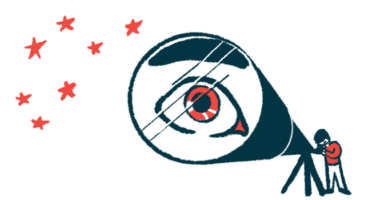Gene Therapy Gel Vyjuvek Granted FDA Priority Review for DEB
FDA decision on Krystal Biotech's application is expected by Feb. 17, 2023

Krystal Biotech’s gene therapy gel Vyjuvek (beremagene geperpavec) for dystrophic epidermolysis bullosa (DEB) has been granted priority review by the U.S. Food and Drug Administration (FDA).
Priority review status is expected to shorten the review process for applications to six months from the standard 10 months. A decision on Krystal’s application for approval is expected no later than Feb. 17, 2023. Currently, the FDA is not planning to hold an advisory committee meeting as part of Vyjuvek’s review.
“We are delighted to receive the FDA’s acceptance of our [application] submission and move one step closer to potentially bringing a medicine to fundamentally treat DEB patients,” Suma Krishnan, Krystal’s co-founder and president of research and development, said in a company press release.
“We are committed to working closely with the FDA to bring this potential, first-ever treatment to patients living with DEB as quickly as possible,” Krishnan added.
Vyjuvek (formerly B-VEC) previously received orphan drug, fast track, rare pediatric, and regenerative medicine advanced therapy designations from the FDA for the treatment of DEB. These statuses are expected to help speed the therapy’s clinical development and regulatory review.
Krystal plans to submit a similar application later this year to regulatory authorities in Europe, where the gene therapy was also named orphan drug and priority medicine for DEB.
Dystrophic epidermolysis bullosa is one of the major forms of epidermolysis bullosa, which is characterized by blisters that often leave scars when they heal or that progress to severely painful open wounds.
Applied directly onto skin wounds without specialized expertise during routine bandage changes, Vyjuvek uses a modified and harmless herpes simplex virus to deliver to skin cells two working copies of COL7A1, the gene that’s mutated in DEB.
COL7A1 provides the instructions to generate type VII collagen (COL7), an essential protein for the adhesion between the outer and middle layers of the skin. The re-dosable gene therapy gel is expected to restore COL7 production, thereby helping wounds to heal and preventing skin blistering.
Contrary to other viruses used in gene therapy approaches, the herpes simplex virus does not integrate into a cell’s DNA. This eliminates the slight risk of integrating in regions that change normal gene activity and lead to cancer.
Application supported by data from two trials showing Vyjuvek’s benefits
The regulatory application was supported by results from two six-month, placebo-controlled trials: the Phase 1/2 GEM-1 trial (NCT03536143) and the Phase 3 GEM-3 study (NCT04491604).
GEM-1 included six adults (five men and one woman) and three children (two boys and one girl) with recessive DEB, a severe form of the disease. These patients carry two mutated COL7A1 copies, one inherited from the mother and one from the father.
GEM-3 enrolled 31 children and adults, ages 1–44, with DEB. More than 90% had the recessive form and 61% were 18 years or younger.
Both trials evaluated the safety and effectiveness of Vyjuvek against a placebo gel in matched wounds of each patient. In GEM-1, the gels were most commonly applied every two to three days to correspond with bandage changes, while in the GEM-3 study, treatment was administered once a week.
Data from the GEM-1 trial demonstrated that all but one of Vyjuvek-treated wounds closed and remained healed for at least three months, while those given the placebo gel showed variable rates of healing and re-blistering throughout the study.
In addition, the gene therapy gel resulted in clinically meaningful improvements over the placebo in complete wound closure, time to wound closure, and durability of wound closure.
In GEM-3, a significantly greater proportion of Vyjuvek-treated wounds were completely healed at three months (71% vs. 20%) and six months of treatment (67% vs. 22%), compared with those given the placebo gel. This meant that the study met both its main and key secondary goals.
In both trials, the gene therapy was deemed generally safe and well-tolerated, with no reports of serious treatment-related adverse events.
Participants who completed GEM-3 had the option to enroll in an open-label extension study (NCT04917874), in which all will treat their wounds with Vyjuvek for up to about 1.5 years. This trial is expected to conclude later this year.








